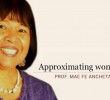As March is a women’s month, this space runs a series on the women’s struggle
The global women’s mass movement, especially from the global south, resulted to a large extent the gender mainstreaming project of the United Nations, notably, the solidarity efforts of women from the North, who raised issues of injustices and undemocratic relations in societies, led to campaigns against wars and sexism. However, there are streams in the efforts of bringing gender concerns to all levels.
In the Philippines, the women’s movement is undeniably shaped by the open mass movement for social transformation at the same time it is not exempt from the errors and deviations from its orientation.
The unpublished study on the general climate of disorientation in the revolutionary movement revealed that women rights and welfare cadres’ had a pendulum swing that was fertile for bourgeois feminism to flourish especially as it brandishes what it called the best insights of feminism and socialism in a new category termed “socialist-feminism.”
The center of criticism is on the supraclass feminist theories. This theorizing on feminism elevates gender as a supraclass issue and the downplaying of the class question. The paper continues that such idea is to mainstream “gender issues clearly along the reformist path and mainly serving the imperialist ideological offensive against the proletariat, class struggle and revolution.” Furthermore, the paper says that gender is pitted against class and glossed over class divisions among women in the name of sisterhood. Women’s oppression was viewed as either biologically determined or simply as a question of power relations between men and women or as both.
It was observed that with debates within the progressive women organizations on the question of class and gender some women political activists were taken to a position that downplayed the class struggle while overstressing the common interest of women as women. These further led to compromises.
It sounds amusing yet with ambivalence to personally recall then when Cory Aquino came to power those statements among women activists revolved around the idea that women share common oppression regardless of class. Accordingly, when GABRIELA was set up in 1984, it became a single organization, with unremoulded upper class women, at times even landlord-comprador women, assuming leadership over the broad masses of working women.
I should say that an element of adventurism seemed to spring from no clear understanding of class interests, the basic demands of poor working class women such as land reform were set aside in deference to landholding women who were deemed allies.
Such positioning influenced the full support extended to President Cory Aquino in the first six months in office not only because she was deemed a “liberal democrat”, when in essence still a landlord-comprador, but also because she was a woman. It was only after Aquino pronounced her Total War policy against all forces that went against the policies of the state that some women activists, myself no exception, internalized the real meaning of class interest over gender.
And true, there were instances that the women’s movement was treated entirely and exclusively of women’s organizations. This was part of the calls to raise primarily specific women demands rather than develop the women’s movement within the framework of the class movement and the entire national-democratic movement. Unmindful of the fact that mixed organizations that espoused women’s agenda for emancipation and liberation as women were emerging if not thoroughgoing in the campaign for women’s rights.










